| Reviews & Columns |
|
Reviews DVD TV on DVD Blu-ray 4K UHD International DVDs In Theaters Reviews by Studio Video Games Features Collector Series DVDs Easter Egg Database Interviews DVD Talk Radio Feature Articles Columns Anime Talk DVD Savant Horror DVDs The M.O.D. Squad Art House HD Talk Silent DVD
|
DVD Talk Forum |
|
|
| Resources |
|
DVD Price Search Customer Service #'s RCE Info Links |
|
Columns
|
|
|
Special Branch: Set One
Well...it's not The Sweeney, but it'll do. Acorn Media has released Special Branch: Set One, a slightly misleading moniker considering this is actually the third "series" (season) reboot, from 1973, of the Thames Television U.K. police procedural/spy series that originally premiered in 1969. Starring George Sewell, Patrick Mower, Roger Rowland, and Richard Leech, Special Branch: Set One works best if you're a nostalgic fan of location-heavy 70s British television―and precisely because of shows like Special Branch, there are plenty of those kinds of enthusiastic viewers, to this day, all over the world. An interview (from 2004) with the two leads is a small but welcome bonus for these okay-looking transfers.
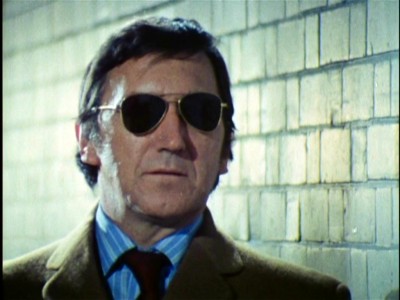
The "Old Bill": The Metropolitan Police Service, London, 1973. Within the various divisions of what is otherwise affectionately known as "Scotland Yard," Special Branch's turf is anything that may disrupt England's national security, so it investigates crimes ranging from political sex scandals to mad bombers threatening to blow up Great Britain's computer databases. Cynical, hard-charging Detective Chief Inspector Alan Craven (George Sewell) apparently has seen it all in his years on the force, so he doesn't suffer fools gladly...especially when they're assigned as his sidekicks. Soft-spoken, educated Detective Sergeant Bill North (Roger Rowland) has come right out of "police school" after university; he has a knack for detail but a marked hesitation when it comes to action―a drawback that worries Craven in their frequent life-or-death assignments. Cocksure, intelligent Detective Chief Inspector Tom Haggerty (Patrick Mower), on the other hand, has no problem pulling the trigger when the need arises. However, Haggerty's flash attitude and insubordinate behavior grates on the non-descript Craven, who has enough trouble already at his job and in his personal life, what with constantly complaining girlfriend, nurse Pam Sloane (Sheila Scott-Wilkenson), beefing endlessly about Craven's time-consuming career. So when Craven gets his latest touch-and-go assignment from dour, disapproving, vinegary boss Chief Superintendent Knight (Richard Leech), he's in no mood to either hold somebody's hand, or reign in a rule-breaking smartass.
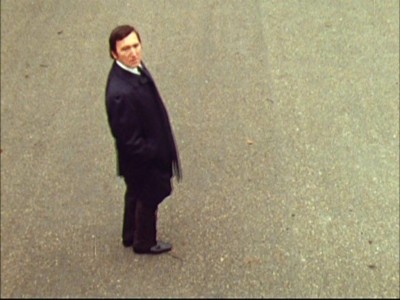
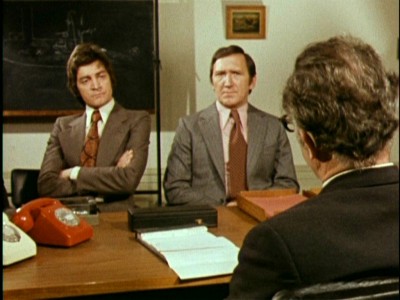
To television enthusiasts and historians, Special Branch, regardless of how well it plays today, would be a noteworthy entry based solely on its historical claim to fame as the first production of the famed Euston Films division of Thames Television. In the late 60s/early 70s, Thames, a licensee of the British ITV television network―the first private competitor of the government-funded BBC network―took a page from fellow licensee ATV (better known here in the States as Sir Lew Grade's ITC, distributors of The Saint and The Prisoner series, among many others...and NOT The Avengers, by the way, as I mistakenly wrote earlier), and decided to concentrate on filmed series that could give U.K. TV audiences a "big screen" experience...while possibly appealing to international broadcast buyers like the U.S. looking for product. Euston Films, a separate division of Thames created in 1971, was primarily devoted to exploiting filmed drama and action stories on the cheap, though, since start-up costs for color television programming and increasingly intrusive government taxes had nixed the glossy, expensive 35mm film look of Grade's ITC efforts. A compromise to 16mm film stock (still better-looking than video), along with a hurried production schedule (10 days tops for a show, with minimal rehearsal and as much location work as possible to eliminate set building) was Euston Films' goal, and Special Branch was deemed a suitable trial offering.
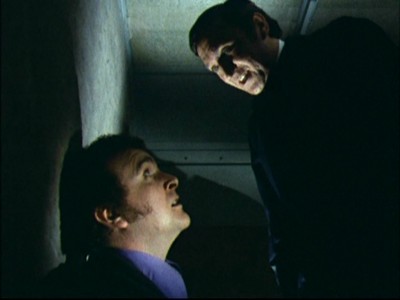
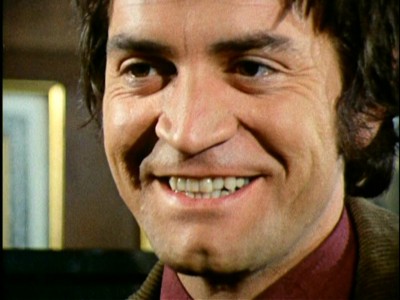
Previously a studio-bound police procedural filmed on cheaper-looking black and white videotape, Special Branch premiered in 1969 and starred Derren Nesbitt (Where Eagles Dare) as Detective Chief Inspector Jordan of Met Pol's Special Branch. A mid-level show that ran two seasons, Special Branch was considered a safe, "known" property with the public, allowing for a smoother transition into Euston Films' proposed new production methods. Fans of the Euston Films' series already know their signature series, The Sweeney, perfectly epitomized this gritty, on-the-fly way of making television; Special Branch didn't achieve anywhere near that later series' critical or popular acclaim, nor did Special Branch fully embrace those new, breakneck production methods (it was done quick and fast...but it still has a pre-planned polish that comes from the earlier ITC era). However, it did lay the groundwork for titles like The Sweeney and Minder, and as such, it's an important entry into U.K. television history.
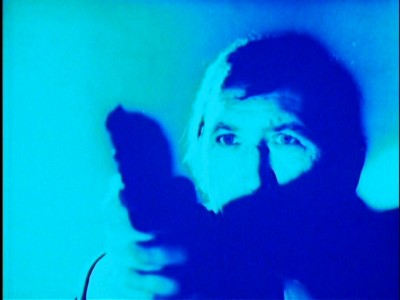

...which means bollocks all to most viewers today; "entertainment" trumps "history" every time, and on the whole, Special Branch works well enough. As I wrote in my Van der Valk reviews (ironically another series eventually rehabbed by Euston), coming to a judgment on a series' aesthetic worth from a nostalgia-based context is an iffy proposition at best...but there's no denying the fun in watching something like Special Branch for the clothes, the attitudes, the conventions, and particularly the location work―a central element of the show's raison d'etre, anyway. That hyperbolic credit sequence alone is worth half the show here, as a quick, blue-tinged montage of various Craven activities―spying on someone, blasting his car through some conveniently-placed cardboard boxes, watching a stripper, ventilating someone with his pistol―whip by to that zippy, catchy theme song, ending with Craven smashing someone in the face to freeze-frame. If you don't enjoy that sequence for what it is and for the times and conventions it epitomizes...you're probably not going to enjoy the rest of Special Branch.
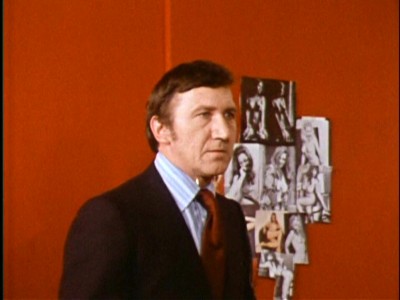
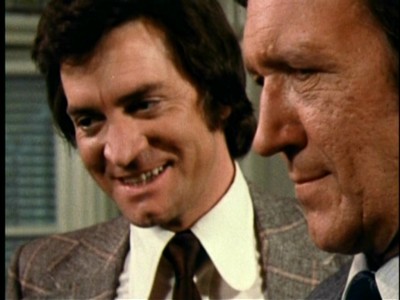
While no doubt tame by today's standards (especially when seen, even back then, through the context of far more aggressive American network offerings), Special Branch was considered quite violent for its time, so the emphasis is first on speed. Characterizations take a back seat to the location work and the action. At the start of the series, there are some half-hearted attempts to establish and fill-out the Craven character. He's given expensive digs that are explained away by the generosity of a pretty, young police widow (a potentially intriguing wrinkle in Craven's private life that is unfortunately immediately dropped). His girlfriend, Pam, is black, leading to some hints of conflicted feelings on Craven's part in a few episodes (he jumps all over North in All the King's Men when Craven suspects him of making a racist remark). However, this potentially rewarding situation is utterly negated by the producers keeping Pam a one-dimensional whinge, forever crabbing about how neglected she is until they finally ditch her towards the end of the season. According to the interview included in this set, the producers didn't like how Rowland's North character was working out, so Mower was brought in to juice up the proceedings...and not a moment too soon, considering how laughably bland Rowland is here (his character is the very definition of "cardboard"). When you try to determine just where Special Branch lies in the evolution of the television police procedural, in terms of more nuanced character motivations, it's important to remember (according to that same interview) that in Threat, Craven's and Haggerty's parts were switched merely by penciling in each other's name...without the viewer noticing anything different. Character interest in Special Branch is generated largely by the performances, not the writing.
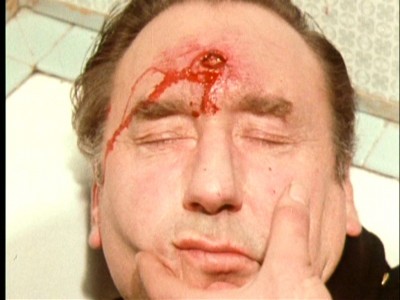
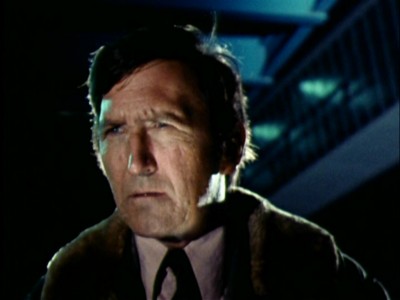
Luckily, those performances keep you coming back for more. Mower, a familiar face to fans of U.K. detective and spy shows (he also jumped up Edward Woodward's Callan quite nicely), has that delightfully toothy Welsh braggadocio and charm, that nervous energy that's just right for a TV project like this; his addition to Special Branch in no small part "saves" this season, offering English hardman Sewell something to bounce off of in comparison to wispy cipher Rowland. Sewell, whom American viewers probably remember from Get Carter and UFO, has, in perfect contrast to Mower, that hard-ass copper snarl and ease with vulgarities down pat. Due to the deliberately gritty, grimy look of Special Branch, Sewell is often photographed to less-than-movie-star-glamour-effect, which only heightens the harsh verisimilitude of his performance. As for the stories themselves...they're appropriately 70s in intent: trendy stabs at political and sociological concerns of the day, with unresolved endings amid cynical, downbeat messages, served up in fast-paced, violent suspenser frameworks. I didn't see one episode here that I would call "original," either in terms of conception or execution. However, that failure to really soar doesn't lessen Special Branch's more accessible, uncomplicated pleasures. Not one bit.
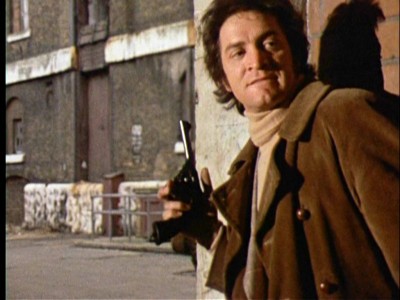
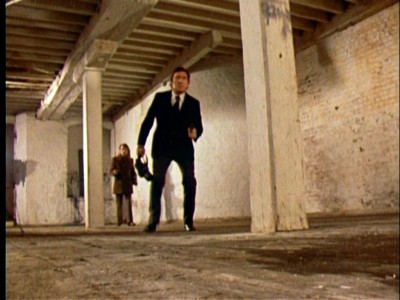
Here are the 13 episodes of Special Branch: Set One, as described on the on-screen episode menus:
DISC ONE
A Copper Called Craven
DCI Alan Craven becomes connected to a smuggler at Heathrow Airport, only to find himself accused of taking bribes. Things go from bad to worse as an internal investigation uncovers a questionable deposit in his bank account. Suspended from duty, Craven must clear his name or face criminal charges.
Round the Clock
Craven is on a stakeout with ambitious new Special Branch colleague Haggerty, and tensions mount steadily. Haggerty believes Craven is hunting for a suspect who's already dead. At the same time, Craven regards the new man as the source of bitter setbacks in his career and life.
Inquisition
Craven busts a fraudster for possession of an unlicensed firearm and a forged passport. But while his fellow officers question his holding the seemingly cooperative suspect without charges, the detecive ratchets up the pressure to get the information he's really seeking.
Assault
Haggerty's visiting father, an elderly retired cop, is savagely beaten into a coma in the latest of a series of attacks on travelers. At first the case falls outside Special Branch's jurisdiction, but when sensitive government documents are stolen from the next victim, Haggerty and Craven launch a manhunt for the criminals.
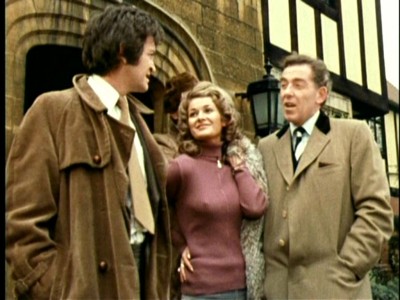
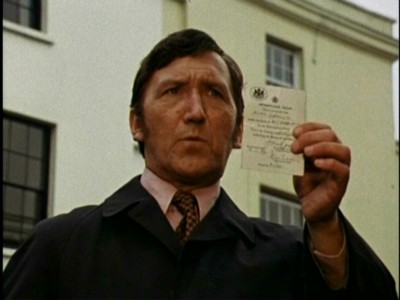
DISC TWO
Polonaise
Special Branch officers North and Craven are asked to protect a Polish shipping captain who happens to be a former Nazi collaborator. Although they have contempt for the man and for their assignment, they must shield him for those who remember his old crimes.
Red Herring
A group of London youths are linked to a series of deadly bombings attempts in the city. With radical connections to the Communist Party and anarchist elements, the group continues in their plot, while the Special Branch team works with an explosives-disposal expert to stop them.
Death By Drowning
A junior defense minister's missing husband turns up dead, fished out of a river in Chiswick. Highly placed people push for immediate investigation of the case, as growing evidence indicates a suspicious cause of death. Special Branch must learn if it was an accident, suicide, or murder.
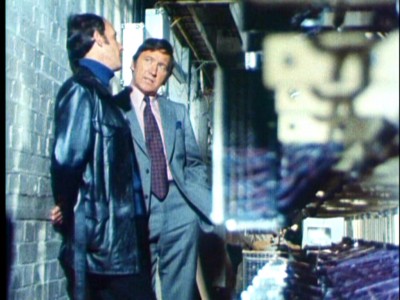
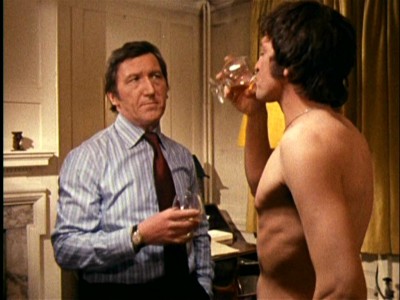
DISC THREE
All the King's Men
When a psychotic ex-CID officer barricades himself and a hostage in a London office building, lacing it with multiple bombs, DCI Craven and the Special Branch team are called in to deal with his demands. Time ticks down as negotiation attempts fail and the man threatens to set off the detonator.
Threat
An outspoken Hollywood actress born in the U.K. comes to star in a play on the London stage. Acting on a warning from the FBI, the Special Branch officers attempt to protect her from an extremist threat.
The Other Man
A left-leaning physician is under surveillance as a possible security risk due to connections to foreign governments. Despite accusations of the doctor leaking politically sensitive trade secrets from a former Special Branch officer's business, Craven grows increasingly uncertain that the man is a traitor.
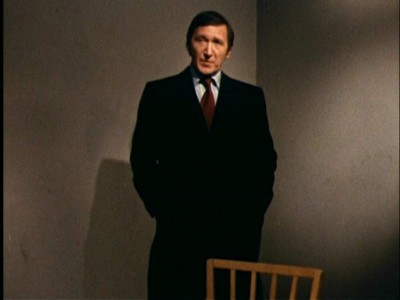
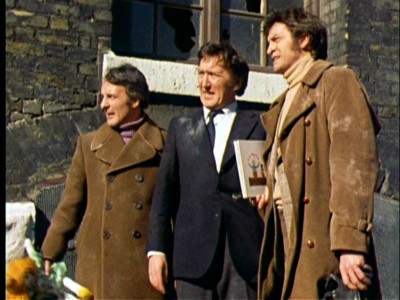
DISC FOUR
You Won't Remember Me
A well-off young couple is placed under heavy surveillance shortly after they become engaged to marry. The groom-to-be, an ambitious import/export agent with numerous international ties, has drawn official suspicion through his activities.
Hostage
The daughter of a German diplomat is kidnapped by a Middle Eastern terrorist group in London. It's up to Craven and Haggerty to rescue her before she gets killed. But time works against the detectives, and events build to an explosive conclusion.
Blueprint for Murder
A militaristic and unpopular South African diplomat visits London, and the men of Special Branch are assigned to protect him from an anticipated assassination attempt. But DCI Craven worries about Sergeant North's effectiveness and does not find the diplomat's attitude helpful.
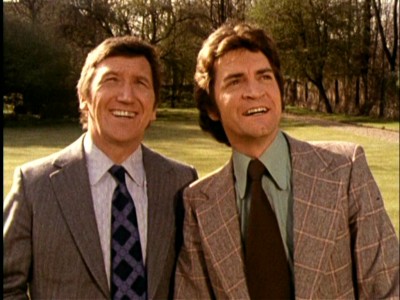
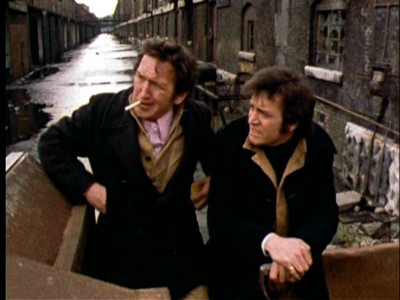
The DVD:
The Video:
The full-screen, 1.33:1 video transfers for Special Branch: Set One look as good as one could expect, taking into account the original materials were shot on 16mm. Therefore, grain is more readily apparent, while the image isn't nearly as sharp as we're used to, and colors a bit muddy or washed out. Still...that's part of the nostalgia quotient.
The Audio:
The English mono audio track is okay; hiss is noticeable but not at all distracting, while dialogue is relatively clean. English subtitles help with some of the accents.
The Extras:
There's an interview, from 2004, that runs 16:17, where Sewell and Mower (filmed separately) discuss the show's production. Both have some good inside stories (and honest insights) on Special Branch. A nice extra.
Final Thoughts:
A warmed-over, transitional experiment of a show that still entertains. Judging by the behind-the-scenes production history of this third series of Special Branch, one gets the feeling that no one involved with it thought it was anything more than a convenient stop-gap on the path to a new way of making TV. And that's fine...because even if the stories aren't particularly original, the location work is top-notch, the mood is suitably 70s London somber, and the leads still manage to draw our attention despite their thinly-written characters. I'm recommending Special Branch: Set One.
Paul Mavis is an internationally published movie and television historian, a member of the Online Film Critics Society, and the author of The Espionage Filmography.


|
| Popular Reviews |
| Sponsored Links |
|
|
| Sponsored Links |
|
|
| Release List | Reviews | Shop | Newsletter | Forum | DVD Giveaways | Blu-Ray | Advertise |
|
Copyright 2024 DVDTalk.com All Rights Reserved. Legal Info, Privacy Policy, Terms of Use,
Manage Preferences,
Your Privacy Choices | |||||||













